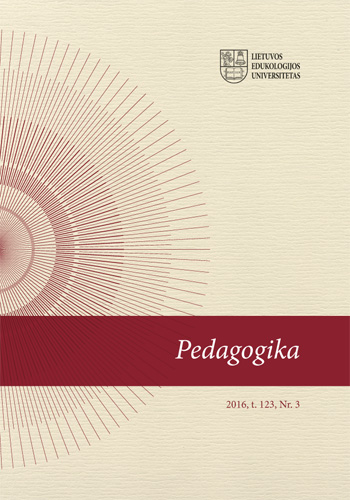Pasitikėjimo fenomenas švietimo politikoje
Phenomenon of Trust in Educational Policy
Author(s): Eglė PranckūnienėSubject(s): Education, Sociology of Education
Published by: Vytauto Didžiojo Universitetas
Keywords: educational change; reform; policy; trust; practitioners; professional capital;
Summary/Abstract: Trust is the essence of all social relations in our lives. It unites our societies, joins or destroys governments, businesses and other social structures. Trust is the necessary element for people to rely on the structures implementing changes. In post-communist societies the level of trust is lower than in Western democracies. It is determined not only by diminished sources of trust during the totalitarian regimes but by rapid societal changes and the lack of new stable fundamentals for trust. Distrust is not the opposite of trust but rather a rational state of mind in certain contexts and situations. Imbalance between trust and distrust in education is represented by inadequate mechanisms of inspection or control and the lack of trust in professionals. After the II World War the Western countries tried different ways to reform education called by A. Hargreaves and D. Shirley (2012) First, Second and Third way. This typology shows how political ideologies influence the development of public education. As for the trust, neoliberal approach in education created an extremely distrustful environment for educational professionals. Neoliberal reforms replaced liberal or social democratic approaches which are characterized by much bigger trust in professionals, as well as less tiresome mechanisms of accountability. In comparison to Western democracies, Lithuanian society and public education experienced an especially rapid and contradictory ideological, social and political transformation related to the creation of an independent state, the rapid overhaul of the national political structure along with global influence. Speaking of the three different ways of reform, it appears that Lithuanian education reform is meandering down all the different ways at once but is most likely stuck between the First – Innovations and Inconsistency – and the Second – Standardization and Markets – Ways. It is reflected by wandering between the socio democratic principles of “education for all” and neoliberal approaches packed into the rhetoric of New Public Management. Due to the contradictory trajectories of educational change, practitioners are becoming “objects” of political requirements loosing their authentic professional life. The quality of education in every country depends on the amount of professional capital: professionals, who implement their moral purpose in trusting environment and strengthening the social capital of the country. The further development of education in Lithuania should address the enrichment of professional capital.
Journal: Pedagogika
- Issue Year: 123/2016
- Issue No: 3
- Page Range: 139-147
- Page Count: 9
- Language: Lithuanian

